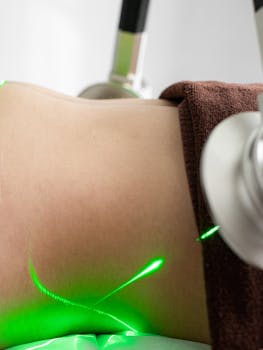Managing pain after an operation is a balance between comfort and safety. This post explains when to restart nsaids after surgery, what the risks and benefits are, and practical steps if you or a loved one is recovering. Whether you’re trying to avoid bleeding, protect bone healing, or simply want to sleep through the night, clear guidance helps you make safer choices and talk with your surgical team.
When should you restart NSAIDs after surgery?
There’s no one-size-fits-all answer. Timing depends on the type of surgery, your bleeding risk, other medications (like anticoagulants), and the surgeon’s preferences. For minor procedures many clinicians allow nonsteroidal anti-inflammatory drugs (NSAIDs) within a few days; for surgeries with high bleeding risk or specific concerns—such as some orthopedic operations—surgeons may recommend waiting longer. Always confirm with the clinician who performed the operation before resuming NSAIDs.
Pros and cons: are NSAIDs helpful or harmful after an operation?
NSAIDs reduce inflammation and provide effective pain relief, sometimes decreasing the need for opioids. That makes them attractive as part of multimodal pain control. However, why no ibuprofen after surgery is a common question: the main concerns are increased bleeding, interference with platelet function, and, in some cases, possible effects on bone healing—hence the frequent question why no ibuprofen after knee surgery. Those risks vary by procedure.
Practical timing questions patients ask
- How long after surgery can you take ibuprofen? For many soft-tissue surgeries, clinicians may clear NSAIDs after 48–72 hours, but for procedures with higher bleeding risk the recommendation may be to wait one to two weeks or until wounds are stable.
- Can I take ibuprofen 2 weeks after surgery? Often yes, but confirm with your surgeon—two weeks is commonly sufficient for bleeding risk to decline, yet individual circumstances (blood thinners, infection risk) change that advice.
- If I accidentally took ibuprofen after surgery, monitor for unusual bleeding (excessive bruising, persistent wound drainage) and contact the surgical team. One accidental dose usually isn’t catastrophic, but you should report it so they can advise on next steps.
- How many days can I take Tylenol after surgery? Acetaminophen (Tylenol) is often safer for controlling pain immediately after surgery and can be used repeatedly within recommended dosing limits. Ask your provider what duration fits your recovery; generally, short-term use is acceptable, but prolonged high dosing risks liver injury.
Choosing the best painkiller for post surgery
Many providers recommend a stepwise approach: acetaminophen first, adding NSAIDs if needed for inflammation-related pain, and reserving short courses of opioids for severe breakthrough pain. So when patients ask what is the best painkiller for post surgery, the honest answer is “it depends” — on pain intensity, side-effect profiles, and your medical history. Multimodal regimens often minimize opioid exposure while improving comfort.
Special considerations: orthopedics and bone healing
Concerns such as why no ibuprofen after knee surgery stem from animal studies and some clinical signals suggesting NSAIDs might impair bone healing in specific contexts. For joint and bone procedures, many surgeons advise delaying NSAIDs until initial healing is underway. Discuss alternatives and timing with your surgeon, especially for major orthopedic operations.
For more general wellness reading that complements post-op recovery—skin care, sustainable routines and reducing chemical exposures—see our eco-friendly skincare guide.
If you want a technical overview of how NSAIDs work and their pharmacology, a reliable resource is the encyclopedia entry on NSAIDs: NSAIDs overview. Use that background when discussing risks and benefits with your clinician.
- Takeaways: NSAID timing after surgery should be individualized based on bleeding risk, type of surgery, and concurrent medications.
- Short-term acetaminophen is often a safe initial choice; NSAIDs can reduce inflammation but may increase bleeding or affect bone healing for some procedures.
- If you accidentally took ibuprofen after surgery, notify your surgical team—one dose is usually not catastrophic, but follow-up is important.
FAQ: Can I take ibuprofen two weeks after surgery?
Often yes, but check with your surgeon. Two weeks is a common milestone when bleeding risk has decreased, yet the right timing depends on your specific surgery, other medications (like blood thinners), and wound status.
FAQ: How long after surgery can you take ibuprofen if I’m worried about bleeding?
Your surgeon will advise based on the procedure. For low-bleeding-risk procedures, some clinicians allow ibuprofen after a few days; for higher-risk procedures, waiting one to two weeks or longer may be recommended. If on anticoagulants, follow both your surgical team and prescribing clinician.
FAQ: What should I do if I accidentally took ibuprofen after surgery?
Contact your surgical team to report the dose and time. Watch for signs of excessive bleeding, increased wound drainage, or unusual bruising. One accidental dose is usually manageable, but your team may want to adjust monitoring or advise additional precautions.






